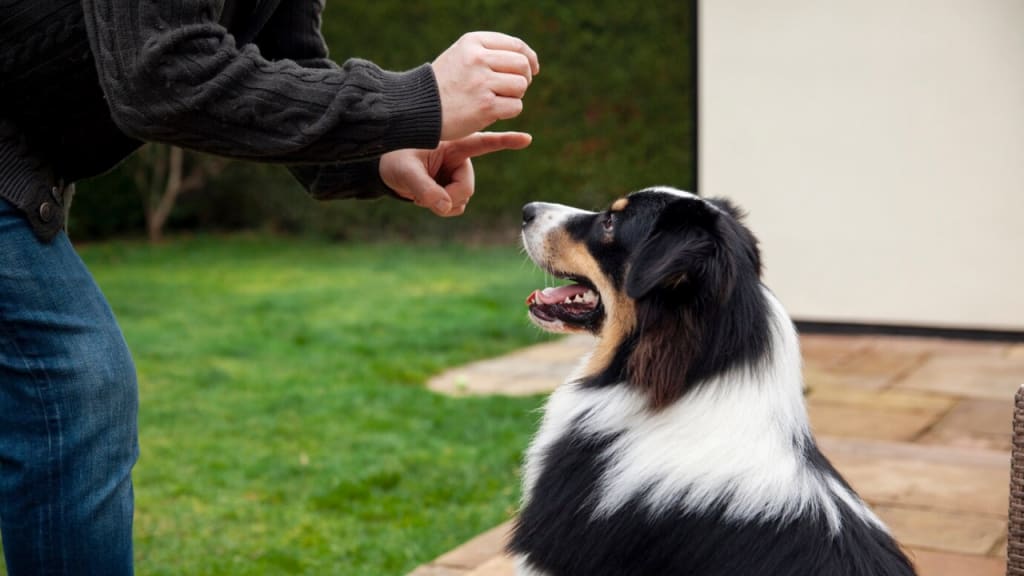10 Alarming Signs You Need to Hire A Behaviourist for Your Dog
Dog Behaviourist Toronto

Owning a dog can bring immense joy and companionship, but it also comes with its own set of challenges, mainly when your furry friend displays concerning behaviour.
Sometimes, these behaviours may indicate a deeper issue that requires professional intervention.
A certified dog behaviourist can provide the necessary expertise to help you understand and address these problems.
If you live in the Toronto area, you can seek a dog behaviourist in Toronto who can offer local, specialized assistance.
Here are some alarming signs that you may need to hire a behaviourist for your dog:
1. Aggression Towards Humans or Other Animals
It is a serious concern if your dog displays aggressive behaviours such as growling, snapping, or biting towards humans or other animals.
Aggression can stem from various underlying issues, including fear, territoriality, or anxiety. A behaviourist can help identify the root cause and develop a tailored plan to manage and reduce aggressive tendencies.
2. Separation Anxiety
Dogs are social animals and can become very attached to their owners. However, excessive distress when left alone can be a sign of separation anxiety.
Symptoms include destructive behaviour, incessant barking or howling, and attempts to escape. A behaviourist can help your dog become more comfortable with being alone and reduce the negative impact of separation anxiety.
3. Excessive Barking or Howling
While barking is a natural behaviour for dogs, excessive barking or howling can become disruptive and may indicate underlying issues such as boredom, anxiety, or fear.
A dog behaviourist in Toronto can assess the reasons behind the behaviour and work with you to implement strategies to manage it effectively.
4. Obsessive or Compulsive Behaviors
Dogs can develop repetitive behaviours such as tail chasing, paw licking, or shadow chasing, which may become compulsive and interfere with their quality of life.
These behaviours can be signs of anxiety, stress, or other issues. A behaviourist can help determine the cause and provide guidance on how to curb these behaviours.
5. Destructive Behavior
Destructive chewing, digging, or scratching may indicate boredom, anxiety, or a lack of mental stimulation.
This behaviour can damage your property and risk your dog's safety if left unchecked. K9 dog training can suggest appropriate outlets for your dog's energy and work with you to modify their behaviour.
6. Phobias and Fears
Dogs can develop irrational fears or phobias, such as fear of loud noises (thunder, fireworks), specific objects, or situations.
These fears can lead to panic attacks and stress-related behaviours. A behaviourist can work with your dog to desensitize it to these triggers and help it cope with its fears.
7. Inappropriate Elimination
If your dog is house-trained but suddenly starts urinating or defecating indoors, there may be an underlying behavioural or medical issue. A behaviourist can help identify the cause and develop a plan to address the problem.
8. Excessive Grooming or Self-Harm
Excessive grooming, licking, or biting at specific areas of the body can lead to skin irritation or injury.
These behaviours may indicate anxiety, allergies, or other medical issues. K9 Academy in Toronto can help identify the root cause and provide strategies to manage the behaviour.
9. Resource Guarding
Resource guarding involves your dog protecting food, toys, or other possessions aggressively.
If not addressed, this behaviour can escalate and become dangerous. A behaviourist can work with you to modify your dog's behaviour and teach it to share and be less possessive.
10. Lack of Socialization
If your dog is fearful or overly aggressive around other dogs or people, it may be due to a lack of proper socialization. A behaviourist can help your dog become more comfortable in social situations and reduce fearful or aggressive tendencies.
Conclusion
If you notice any of these alarming signs in your dog's behaviour, it is vital to seek professional help.
A certified dog behaviourist can assess your dog's behaviour, identify the underlying causes, and develop a customized plan to address the issues.
Early intervention can prevent the escalation of behavioural problems and improve your dog's quality of life. Working with a behaviourist can help your dog become a happier, well-adjusted companion.
About the Creator
Rupesh Kumar
Rupesh is a self-taught writer who has been working for Exposework for over 2 years. He is responsible for writing informative articles that are related to business, travel, health & fitness, and food.






Comments
There are no comments for this story
Be the first to respond and start the conversation.